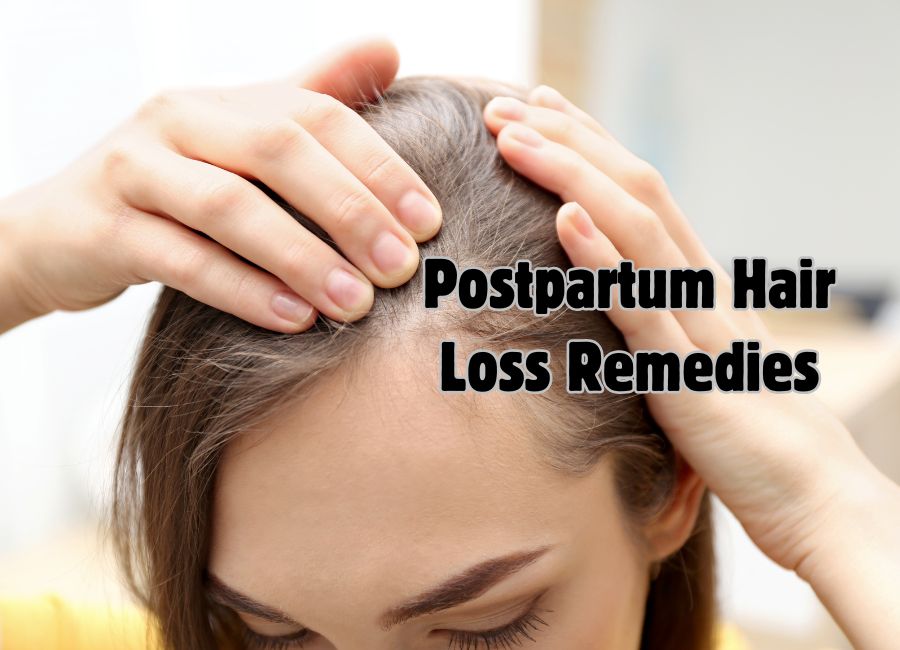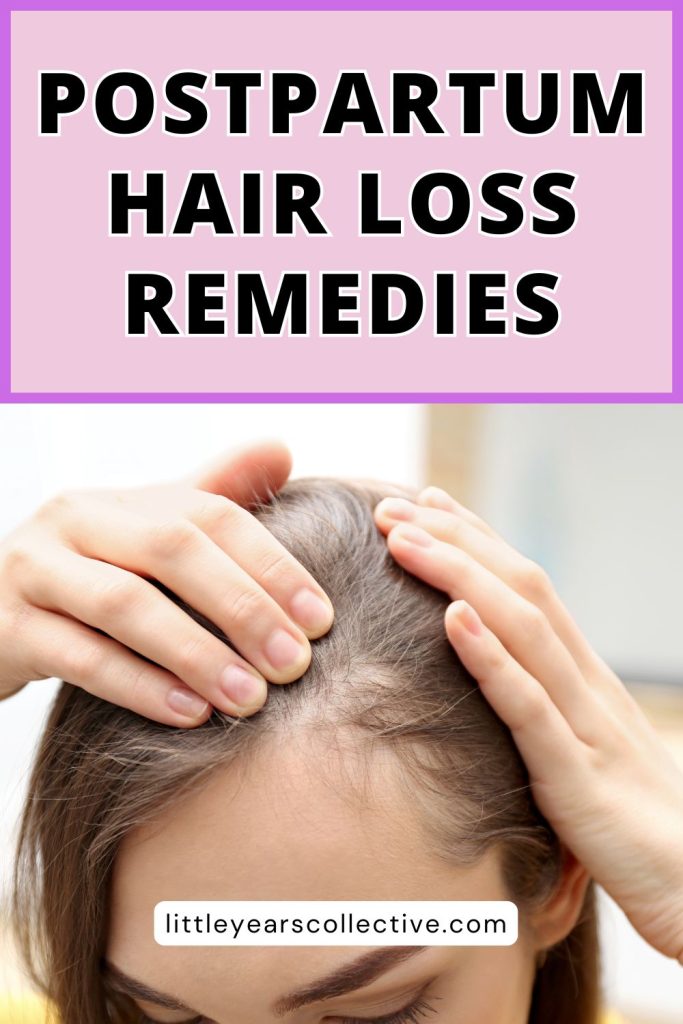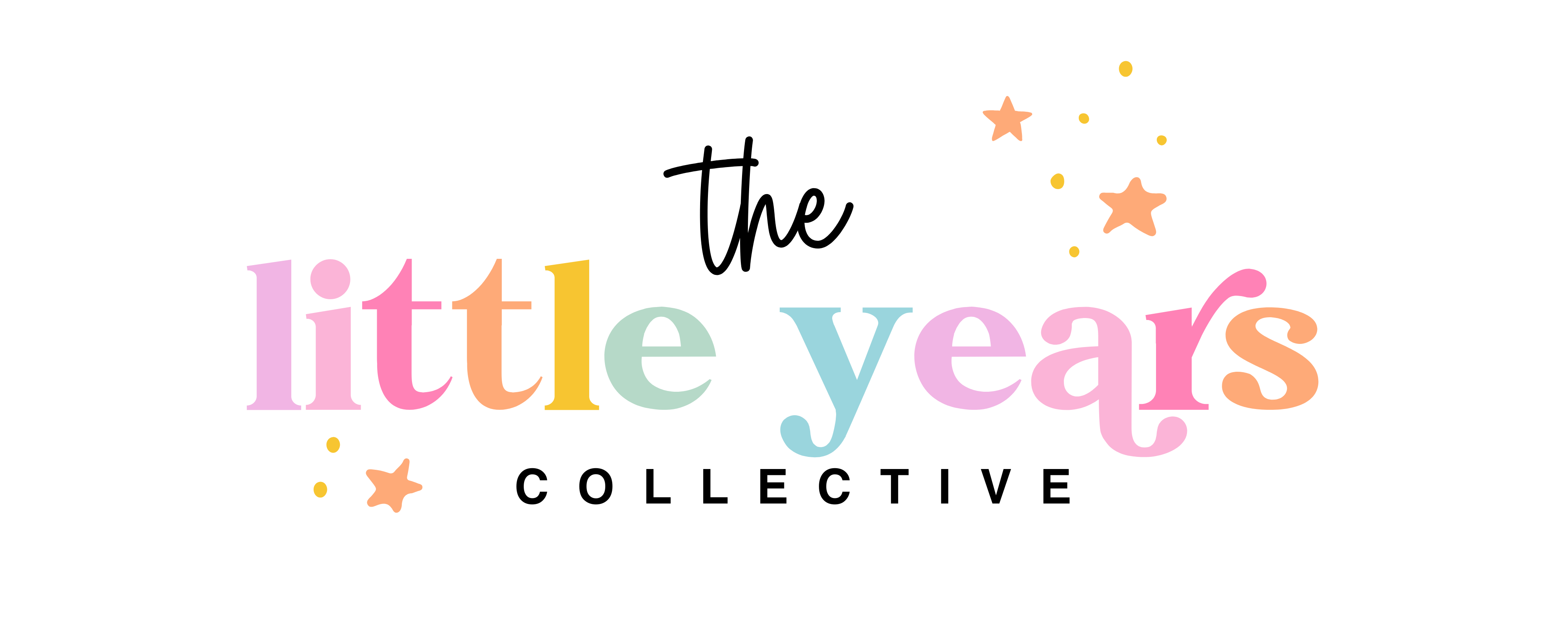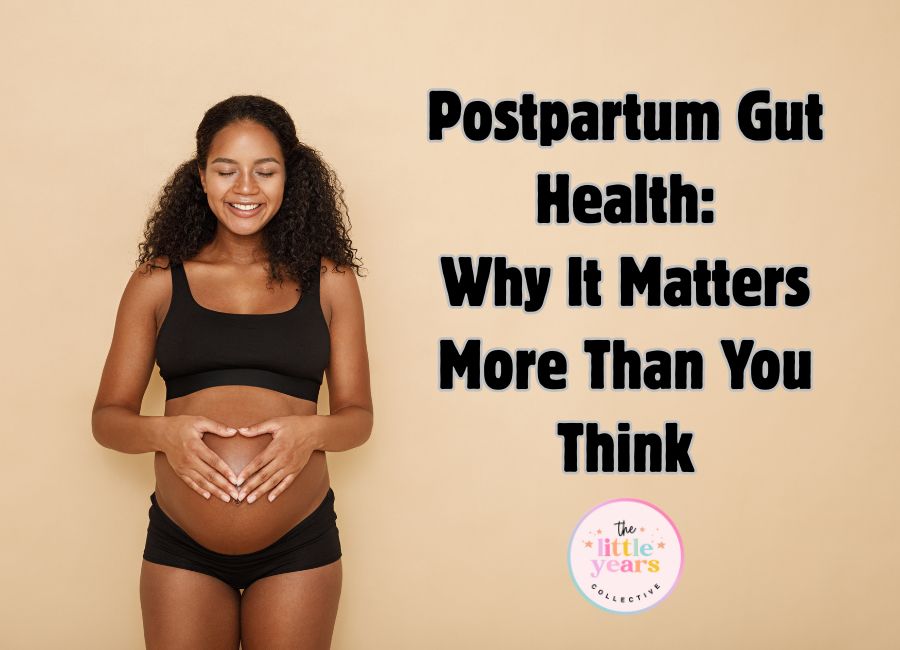Postpartum Hair Loss Home Remedies: What New Moms Need to Know
This blog post is for educational purposes only. Always consult your healthcare provider when making decisions related to pregnancy, postpartum recovery or parenting. Some links may be affiliate links. That means I may make a commission if you use my links to purchase, at no extra added cost to you. I only recommend products that I personally love and believe in. Read our full privacy policy.

The postpartum period is filled with beauty, bonding, and—let’s be honest—a few unexpected surprises. One of the more common (and frustrating!) surprises for new mothers? Postpartum hair loss.
If you’ve started seeing clumps of hair in the shower drain or thinning around your hairline, you’re not alone. This common condition, medically known as telogen effluvium, affects many women in the months postpartum and can be a bit of a shock—especially after that luscious pregnancy hair.
But here’s the good news: postpartum hair loss is a temporary condition. Better yet, there are natural remedies and gentle at-home practices that can support healthy hair growth and help you feel like yourself again.
This guide will walk you through everything you need to know about postpartum hair loss home remedies, from understanding the science behind it to effective tips for stronger, thicker hair.
Understanding Postpartum Hair Loss
First, let’s talk about what’s really going on.
During pregnancy, hormonal changes—especially elevated estrogen levels—extend the anagen phase, or growth phase, of the normal hair growth cycle. That’s why pregnant women often notice thick hair with extra shine.
But once your baby is born and hormone levels return to their pre-pregnancy state, your hair enters the telogen phase, also known as the resting phase. This shift causes more hair follicles to shed at once—leading to postpartum alopecia, the scientific name for postpartum hair fall.
This process is completely normal. Still, it can be emotionally tough, especially when paired with lack of sleep, nutritional deficiencies, and adjusting to your new life with a new baby.
When Does Postpartum Hair Loss Start?
Most new moms will notice post-pregnancy hair loss around 2–4 months after delivery. The shedding phase can last up to 6 months, with significant hair loss often tapering off by your baby’s first birthday.
If you’re still experiencing excessive hair loss beyond a year, it’s a good idea to check in with your healthcare provider to rule out any underlying medical conditions.
Top Causes of Excessive Postpartum Hair Loss
Aside from hormonal shifts, these key factors may contribute to further hair loss:
- Nutritional deficiencies (like iron deficiency, low vitamin D, or vitamin B levels)
- Increased stress levels
- Lack of sleep and overall health struggles
- Use of harsh chemicals in hair products
- Tight ponytails or tight hairstyles that pull on hair strands
Natural, Evidence-Based Home Remedies for Postpartum Hair Loss
Now that we understand why it’s happening, let’s dive into the best way to care for your hair naturally at home. These home remedies are safe, simple, and can promote healthier hair and a balanced return to your normal hair growth cycle.
1. Scalp Massage
Regular scalp massage is one of the most relaxing and effective ways to stimulate blood flow to the hair follicles. This increased blood circulation brings more essential nutrients to the hair shaft, encouraging healthy hair growth.
Use your fingertips or a soft brush and try massaging for 5–10 minutes a few times a week.
Bonus tip: Add coconut oil, almond oil, or olive oil for extra moisture and nourishment.
2. Coconut Oil & Coconut Milk
Rich in fatty acids, coconut oil is a go-to for natural hair health. It penetrates the hair shaft, helps reduce protein loss, and soothes the scalp. Apply warm coconut oil to your hair and leave it on for 30–60 minutes before washing.
Coconut milk also contains essential nutrients and can be applied as a mask to condition the scalp and promote growth.
3. Castor Oil
Used for generations as a natural remedy for hair regrowth, castor oil contains vitamin E, fatty acids, and amino acids that deeply nourish the scalp. Mix it with a lighter oil like coconut or olive oil to make it easier to apply.
4. Aloe Vera
Aloe vera is soothing and rich in enzymes that may promote stronger hair. It helps maintain the pH balance of the scalp and supports hair regrowth.
Apply fresh aloe gel to your scalp, leave for 30 minutes, and rinse.
5. Fenugreek Seeds
Steeped in tradition and backed by numerous studies, fenugreek seeds are packed with vitamin C, iron, and protein. Soak them overnight, grind into a paste, and apply as a scalp mask. Rinse after 30–40 minutes for best results.
6. Egg Whites
Egg whites are high in protein and amino acids, which help repair and strengthen hair strands. Mix with a tablespoon of olive oil and apply to your hair for 20 minutes before rinsing.
7. Indian Gooseberry (Amla)
Indian gooseberry is high in vitamin C and antioxidants that improve blood circulation and strengthen hair follicles. Amla oil or powder can be used as a mask or added to hair oil blends.
8. Essential Oils
Lavender, rosemary, and peppermint essential oils have been shown to stimulate hair growth. Mix a few drops with a carrier oil (like almond or coconut oil) and gently massage into your scalp.
The Role of Diet in Postpartum Hair Health
As you might guess, a balanced diet is key to supporting your hair health and overall health.
Include plenty of:
- Lean proteins (eggs, lean meats, legumes)
- Healthy fats (avocados, nuts, seeds)
- Whole grains and green leafy vegetables
- Dairy products (if tolerated)
- B vitamins, vitamin D, vitamin C, vitamin E, iron, and zinc
Don’t Forget Your Prenatal Vitamins
Even after birth, continuing your prenatal vitamins can help fill in any nutrient deficiencies during the postpartum phase. These supplements provide essential nutrients like iron, vitamin D, folic acid, and b vitamins that support both your hair health and energy levels.
Lifestyle Tips to Support Healthy Hair Growth
In addition to home remedies and dietary changes, small lifestyle changes can make a big difference:
- Manage stress levels with deep breathing, meditation, or herbal tea
- Prioritize sleep when you can (easier said than done, we know!)
- Avoid tight hairstyles and harsh styling tools
- Use natural products free of parabens and sulfates
- Gently detangle hair and avoid over-washing
When to Seek Medical Advice
While postpartum hair loss is usually normal, you should consult your healthcare provider if you notice:
- Clumps of hair coming out months after birth
- Signs of iron deficiency (fatigue, pale skin, dizziness)
- Symptoms of thyroid issues (weight changes, dry skin, mood swings)
- No signs of hair regrowth after one year
In some cases, medical treatments or blood tests may be needed to check for underlying conditions.
You might also enjoy these postpartum articles:
Postpartum Gut Health: Why It Matters More Than You Think
Final Thoughts: You’re Not Alone
Postpartum hair loss can feel overwhelming, especially when you’re adjusting to your new baby and all the significant changes that come with motherhood. But the good news is that your hair will bounce back with time, care, and the right support.
By focusing on natural remedies, a healthy diet, and nurturing your overall health, you’re taking the first step toward healthier hair—and feeling more like yourself again.
You’re doing an incredible job, mama. And just like everything else in this season, this too shall pass.
Want More Postpartum Support?
Be sure to check out our resources and expert-led courses at The Little Years Collective—designed to help new mothers feel empowered, connected, and confident in every step of their postpartum recovery.
Because you deserve support that’s evidence-based, mom-tested, and filled with heart.
Pin this for later, share with a fellow new mom, or drop your favorite postpartum hair loss treatment in the comments below!


